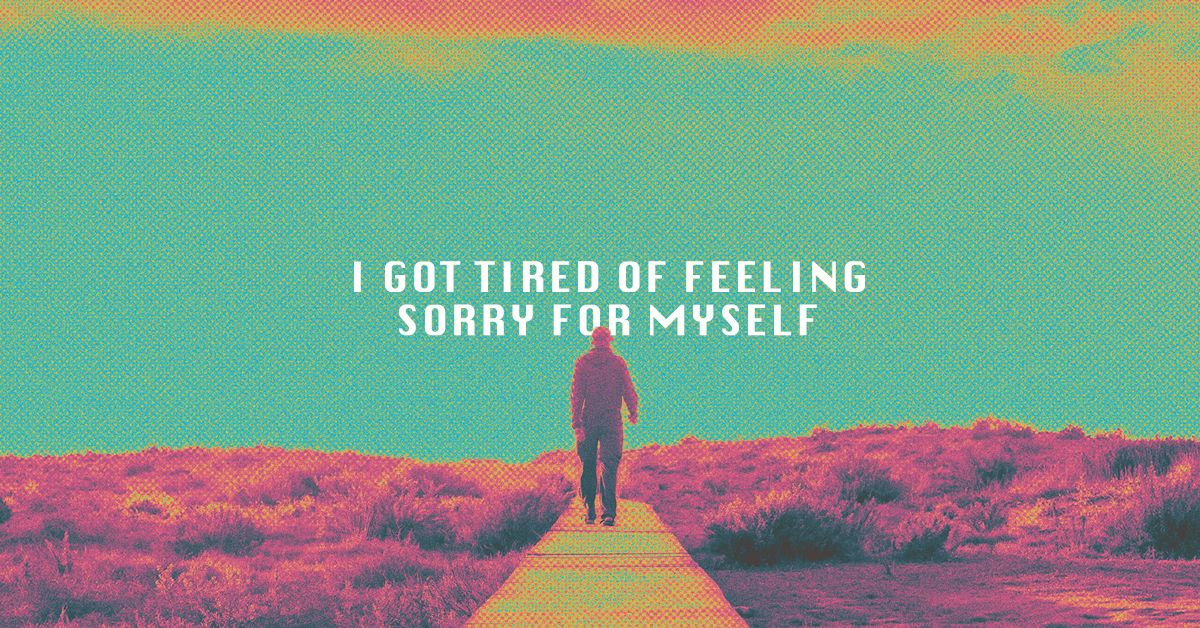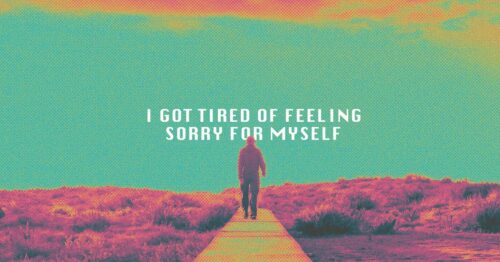Here’s how I stopped
“Why does this keep happening to me?” is a phrase that has made a home in my head. It used to be the question I’d ask myself (and everyone around me) for every inconvenience experienced, roadblock hit and hurdle I had to jump over to make it to the end. To those standing on the receiving end of my misery-filled rants, it became a sign that nothing would get through my thick head. Uttering this sentence was a knee-jerk reaction that gave way to more overthinking. It offered fuel to the taunting voices in my head, powering a flame of doubt, eventually chiseling away at my happiness and confidence. After all, it’s so, so easy to talk shit about myself, to hand my inner saboteur the reigns to my thoughts.
Eventually, a “what if” always hung at the back of my head, stopping me from fully enjoying things. It had me catastrophizing every little thing under the guise of “foresight” and “preparing for the worst-case scenario.” I used to think that every pair of eyes glancing at me in a room was sizing me up, and every compliment said to my face was meant to make up for a crude observation left unsaid. Look, I’ve long accepted that my brain is a natural storyteller—I mean, it did land me my dream job—it goes on and on, wandering to places where it isn’t needed, like overanalyzing the problems instead of actually learning or blowing minor misgivings out of proportion instead of extending my patience. I’ve lost so much sleep and shed so many tears over all these made-up scenarios, doubting all my victories and questioning why I’m not on the losing end.
But after hitting the lowest rock bottom in my life, I wanted out. Finally fed up with keeping score on all the wrong things, the heaviness in my chest that I carried for as long as I could remember weighed me down. I got tired of feeling sorry for myself, drowning in self-pity but refusing to do anything about it. While Generation Z might chalk this up to the brain’s frontal lobe fully maturing at 25 and offering me some newfound mental clarity (AKA a psychological concept often regurgitated and misinterpreted on the ‘Tok), I see this change as the straw that broke the camel’s back. I finally stopped waiting for the tides to change. Instead, I steered the boat all by myself and took control.
RELATED: My Mom Apologized To Me and My Inner Child Healed
Acknowledgment is the first big leap
Let me nip this in the bud: this isn’t toxic optimism talking. I know what it feels like to be bombarded with unnecessary fake happiness when all I want to do is rot with all the misfortunes the world has brought down on me. But being on edge gets tiring, okay? Always expecting the worst of others and not taking things as they are will chip away at something in you: your resolve, patience or happiness. In my case, I slowly forgot what it truly meant to be happy, what pure, unadulterated enjoyment felt like. And I wanted and knew that it had to change because I should be able to celebrate every good thing that falls on my lap without wondering if I actually deserve it or if the universe will take it away from me in a snap.
Jeffrey Bernstein, Ph.D., says it best in his story for Psychology Today: “Trashing yourself is highly addictive, but like most addictions, it can be overcome.” Acknowledging that is a giant leap because you want to break the pattern you find yourself diving into. Knowing that something needs to shift, no matter how big or small, whether you can do it on your own or with some help, is an enormous leap in itself. From confiding in friends to seeking professional help, you can do many things to start.
RELATED: Mental Health in the Gen Z Era: Are Too Many Kids “Mentally Ill?”
A slow and steady mindset shift
Holding on to a certain saying when things get tough has worked for me. So whenever I ask the golden question, I actively try to recalibrate my thinking into the phrase: “No one’s out to get you.” I find comfort in my insignificance that says every bad thing isn’t a point against me. I calm down when I realize that no one will lose sleep over a mistake I made throughout the day. Routines are too packed, and everyone speeds through their days way too fast for them to fixate on what I can’t do. And if other people actively prove me otherwise, it’s high time to move on from that relationship. I shouldn’t concern myself with those who can’t match my energy, right? (And if I’m not concerned about them matching my energy at all, then I shouldn’t be worried about them in the first place.)
Try returning to previous patterns and old habits. What do you do when self-pity rears its ugly head? How do you react? What usually triggers you and makes your skin crawl? Sometimes, looking back provides the answers you need. Play into old reactions so they lead to new ones, and tweak your logic to deliver a different message in the language you speak. Again, you don’t need to do all of this alone. Help, such as your loved ones and licensed professionals, can assist in processing these complicated feelings.
RELATED: The New Wave of Hustle Culture Is Still Pretty Toxic
To be completely honest, this mindset adjustment doesn’t happen overnight. I may write about this confidently, but I also find myself wallowing in self-pity after particularly difficult problems. But let me reassure you that it does get easier to manage with time and practice. Again, healing isn’t linear. But accepting that something needs to change in the long run will help keep you on track.
Words Kai Franco
Art Macky Arquilla


















